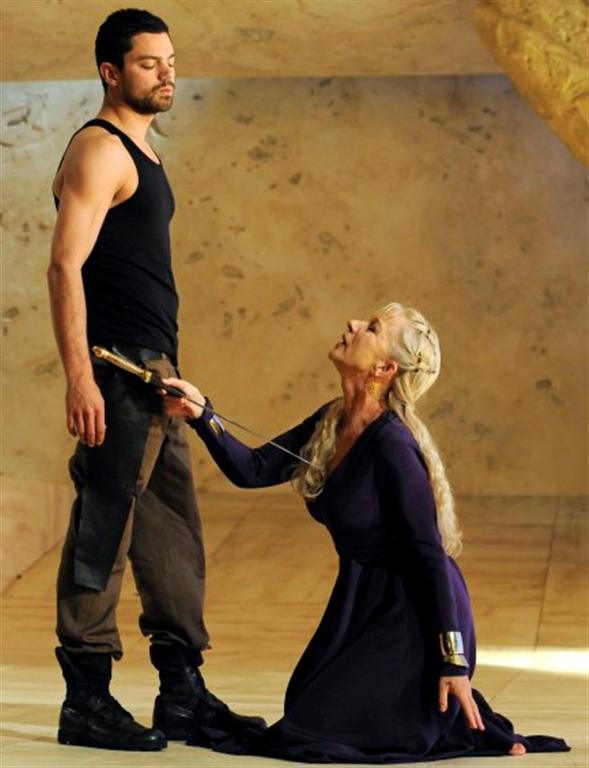Death, desire and despair at the Odioun; the pholly of Phedre
She has desired Hippolytus since the day she married his father. Proud, aloof, disdainful of women; he has all the strength of the father but none of his sire’s weakness for sexual temptation, or so it seems. He is a real challenge. She has to possess him, but Hippolytus is also her stepson. Theseus, a fierce and vengeful man, would kill both of them. So Phedre denies her desire even to herself. She avoids her stepson, she criticizes him, complains about him, even has him exiled. She has to protect herself by expunging the temptation. But then Theseus goes on another adventure and places his court, including his wife, his children, even Aricia, the captured daughter of Erechteus, the previous King, under Hippolytus’ protection in Trozion.
Phedre can no longer contain her passion. She encounters Hippolytus ever day and the thought of him propels her into a torment of lust and guilt. She hides herself away from the all revealing God of the sun, she becomes ill, tries to take her own life; anything to get Hippolytus out of her mind.
Then news from Athens announces that Theseus is dead. Phedre was suddenly free to express her desires, claim her prize. But Hippolytus recoils in shock; he is already in love with Aricia, but just as Phedre reveals the full extent of her lust, Theseus arrives, very much alive.
Terrified of Theseus wrath, Phedre allows her husband to believe that Hippolytus has raped her. Theseus is furious; he evokes the assistance of Neptune to destroy his son.
Neptune does his bidding. Hippolytus is attacked by a sea monster on the beach as he races to marry Aricia. His chariot is destroyed and he is trampled by his own horses. Aricia drags the sack containing the bloodied corpse into Theseus’ presence, who is stricken by grief. Phedre appears, having swallowed a lethal dose of poison. She admits Hippolytus’ innocence and dies.
It’s another night of entertainment and adventure at the Odeon. Life in a giant tub of popcorn!
Falling in love is the most dangerous thing any of us can ever do. The power of lust makes us so vulnerable to annihilation through exposure, exploitation and abandonment. Fearful lovers protect themselves from the appalling risks in many ways; denial, deception, disregard, infidelity and rejection. Pretending not to care, flirting with others to evoke jealousy, playing hard to get are all games lovers play to stay in control of their passions. Phedre just took it to lethal proportions. Terrified of her husband’s rage, she was prepared to sacrifice her lover and his son.
Great passion is a game of life and death. The Gods understood it and were not averse to a little interference. Hormones, the chemicals that mediate emotional responses in the body, are named from the Greek word eremonos, meaning messengers from the Gods.
Phedre, starring Helen Mirren and Dominic Cooper, is currently playing at the National Theatre, but on June 25th it went global and was beamed by satellite from the South Bank to cinemas around the country and across the world.




I chanced upon Johnson’s tsitrlanaon of the Ode of Horace just a few days ago. I found it to my great delight in a new used copy of the Norton Anthology of English Literature, book 1, that I purchased at a local book store. My own first copy, dating back to the 70 s .has finally fallen to pieces. In looking for the section on Johnson, I saw the Ode, read it and was instantly taken by a few of the images that just leapt out at me. The idea of Jove tossing us about was remarkable. The lines Where Priam and his sons are laid./Is nought but Ashes and a Shade incredibly beautiful. I’m a big Johnson fan and have read two fantastic bios on him in the last year or so. I was also delighted to come across this web site today. Look forward to reading from time to time.